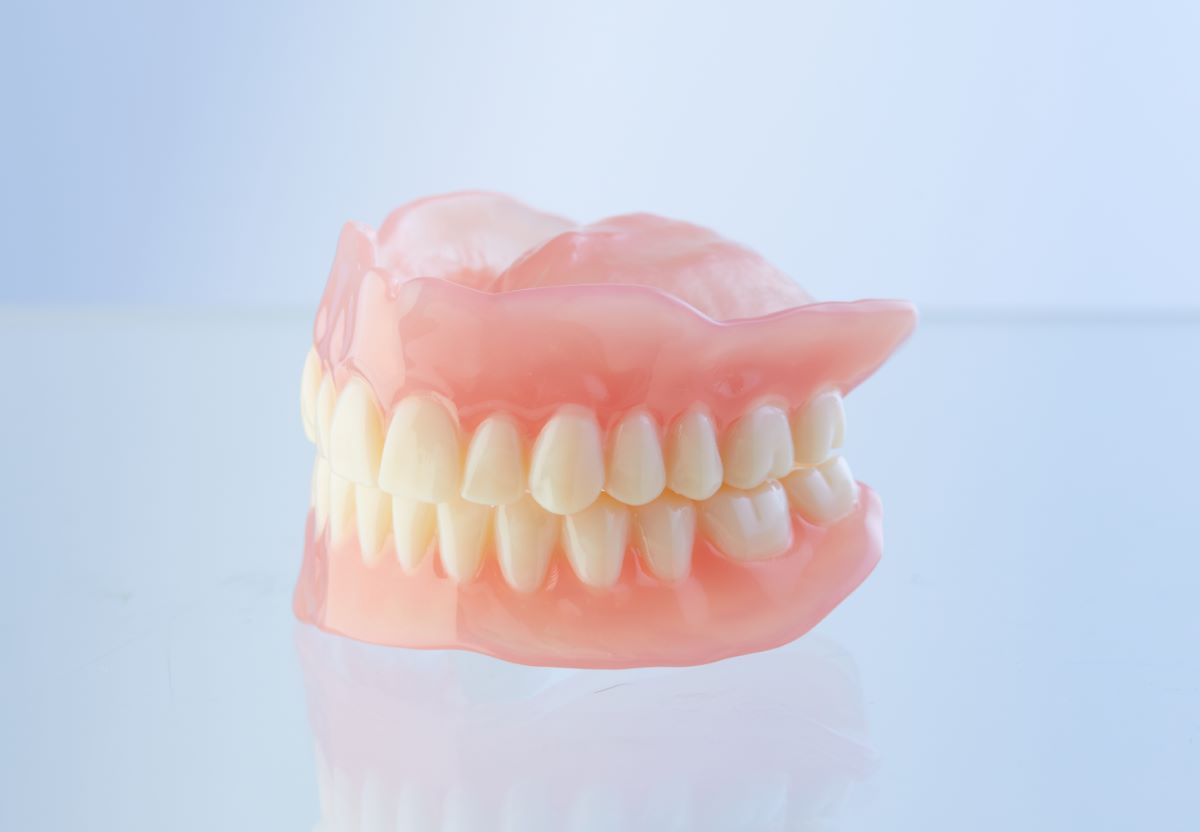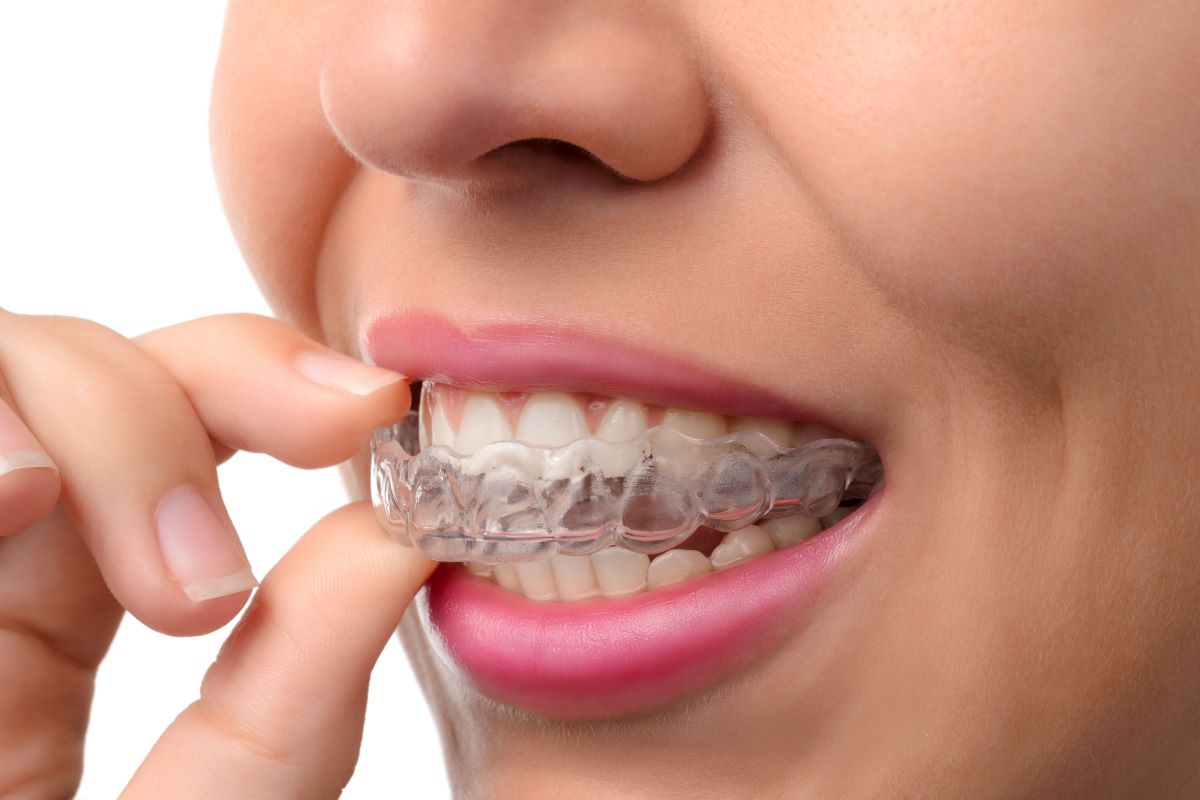

Finance
What Is The Cost Of Dentures Without Insurance
Published: November 23, 2023
Find out the cost of dentures without insurance and explore financing options for affordable dental care.
(Many of the links in this article redirect to a specific reviewed product. Your purchase of these products through affiliate links helps to generate commission for LiveWell, at no extra cost. Learn more)
Table of Contents
Introduction
When it comes to dental health, taking care of your teeth is crucial. However, sometimes circumstances occur that result in the need for dentures. Whether it’s due to tooth loss from decay, gum disease, or an accident, dentures can be a viable solution to restore your smile and improve your ability to eat and speak.
While dentures offer numerous benefits, one thing that might concern you is the cost. Without insurance coverage, the cost of dentures can seem overwhelming. However, understanding the factors that contribute to the cost can help you better prepare and explore financing options.
This article aims to shed light on the cost of dentures without insurance, helping you understand what to expect and how to navigate the financial aspect of this dental intervention. We’ll discuss various types of dentures, the average cost range, and additional costs to consider when getting dentures. Additionally, we will explore financing options and alternative treatments that may be available to you.
It is essential to note that the prices mentioned in this article are approximate and can vary based on numerous factors, including your location, specific dental needs, and the dental professional you choose. Consulting with a dentist is the best way to get an accurate estimate for your unique situation.
Understanding Dentures
Dentures are removable appliances that replace missing teeth and their surrounding tissues. They are custom-made to fit comfortably in your mouth and are designed to improve your appearance, enhance your ability to chew and speak, and maintain the structure of your face.
There are two main types of dentures: complete dentures and partial dentures. Complete dentures are used when all of the teeth are missing, while partial dentures are used when some natural teeth remain. The dentures are typically made of acrylic resin, which closely resembles the appearance of natural teeth and gums.
The process of getting dentures typically involves several stages. First, your dentist will conduct a thorough examination of your mouth and may take impressions and measurements. These will be used to create a model of your mouth, which will serve as a basis for crafting the dentures.
Once the dentures are created, your dentist will ensure they fit properly and make any necessary adjustments for comfort. It is normal for there to be an adjustment period as you get used to wearing dentures, and your dentist will provide guidance on how to care for them to ensure their longevity.
It’s important to understand that dentures are not a permanent solution. Over time, the shape of your mouth and gums may change, requiring adjustments or relining of the dentures. Additionally, dentures may need to be replaced after several years of use due to normal wear and tear.
With proper care and maintenance, dentures can provide you with an improved quality of life and restore your confidence in your smile. However, it’s crucial to consider the cost associated with obtaining and maintaining dentures, especially if you do not have dental insurance to help cover the expenses.
Factors Affecting the Cost of Dentures
Several factors contribute to the overall cost of dentures. Understanding these factors can help you estimate the cost and make informed decisions about your dental treatment. Here are the key factors that can influence the cost of dentures:
- Type of Dentures: The type of dentures you need will greatly impact the cost. Complete dentures, which replace all of your missing teeth, are generally more expensive than partial dentures designed to replace only a few teeth.
- Materials Used: The materials used in the fabrication of the dentures can affect the overall cost. Higher quality materials, such as porcelain or composite resin, may be more expensive than acrylic resin dentures.
- Dentist’s Expertise and Location: The experience and expertise of the dentist, as well as the location of their practice, can influence the cost. Dentists in large cities or upscale areas may charge higher fees compared to those in smaller towns or less affluent regions.
- Additional Preparatory Procedures: In some cases, additional dental procedures may be necessary before the placement of dentures. This can include tooth extractions, gum tissue recontouring, or bone grafting. These procedures will add to the overall cost of the treatment.
- Customization and Aesthetics: The level of customization and aesthetics of the dentures can impact the cost. Dentures that are designed to closely match the appearance of natural teeth and gums may be more expensive than basic, standard dentures.
- Follow-up Appointments and Adjustments: After receiving dentures, regular follow-up appointments may be necessary for adjustments, realignments, or repairs. These visits and any associated costs should be taken into consideration when estimating the overall cost of dentures.
It’s important to consult with your dentist to determine the specific factors that will influence the cost of your dentures. They will be able to provide you with a detailed breakdown of the expenses and offer guidance on how to manage the financial aspect of your dental treatment.
Types of Dentures
There are several types of dentures available, each designed to cater to different dental needs. Understanding the options can help you make an informed decision about the type of dentures that will work best for you. Here are the main types of dentures:
- Complete Dentures: Complete dentures, also known as full dentures, are used when all of the natural teeth are missing. These dentures are made to replace the entire upper or lower arch of teeth. Complete dentures can be conventional or immediate, depending on the timing of placement. Conventional dentures are made after the teeth have been extracted and the gum tissues have healed. Immediate dentures, on the other hand, are made in advance and can be placed immediately after tooth extraction.
- Partial Dentures: Partial dentures are used when some natural teeth remain in the mouth. These dentures consist of replacement teeth attached to a metal or acrylic base that matches the color of your gums. Partial dentures are designed to fill in the gaps left by missing teeth and prevent the remaining natural teeth from shifting.
- Implant-Supported Dentures: Implant-supported dentures are a more secure and stable option for those who have lost multiple teeth. These dentures are anchored to dental implants that are surgically placed in the jawbone. The implants act as secure anchor points, providing a strong foundation for the dentures. Implant-supported dentures offer improved comfort, stability, and chewing efficiency.
- Immediate Dentures: Immediate dentures are temporary dentures that are placed on the same day as tooth extraction. They are designed to allow you to have teeth immediately after extraction while you wait for your gums to heal and for your permanent dentures to be made. While immediate dentures provide a temporary solution, they may require more adjustments and relining as the gums heal and shrink.
- Overdentures: Overdentures are a type of removable denture that is designed to fit over natural teeth, dental implants, or attachments. The remaining natural teeth or implants provide stability and support for the denture, improving its retention and functionality.
Consulting with your dentist will help determine which type of denture is most suitable for your specific needs. They will consider factors such as the condition of your oral health, the number of missing teeth, and your overall dental goals to recommend the most appropriate denture option for you.
Average Cost of Dentures
The cost of dentures can vary widely depending on various factors, including the type of denture, materials used, and additional dental procedures required. While it’s important to consult with your dentist for an accurate estimate, here is a general range of the average costs you can expect:
- Complete Dentures: The average cost of complete dentures can range from $1,000 to $3,000 per arch. This cost includes the fabrication of the denture, adjustments, and follow-up appointments.
- Partial Dentures: The average cost of partial dentures can range from $500 to $2,500. The price will depend on factors such as the number of teeth being replaced, the materials used, and the complexity of the design.
- Implant-Supported Dentures: Implant-supported dentures are generally more expensive due to the additional placement of dental implants. The average cost for implant-supported dentures can range from $3,000 to $30,000, depending on the number of implants and the complexity of the case.
- Immediate Dentures: Immediate dentures are typically more affordable compared to other types of dentures. The average cost of immediate dentures ranges from $1,000 to $2,000 per arch.
- Overdentures: The cost of overdentures can vary depending on whether they are supported by natural teeth or dental implants. On average, overdentures can cost between $3,000 and $8,000.
It’s important to note that these are average cost ranges and may vary depending on your specific location, the expertise of your dentist, and the quality of materials used. Additionally, the cost may increase if additional procedures, such as tooth extractions or bone grafting, are required before denture placement.
While the cost of dentures can be a significant investment, it’s important to prioritize your oral health and consider the long-term benefits. Dentures can restore your ability to eat, speak, and smile with confidence. If you’re concerned about the cost, exploring financing options and discussing payment plans with your dentist can help make dentures more affordable for you.
Additional Costs to Consider
When budgeting for dentures, it’s crucial to consider additional costs that may arise throughout your treatment. While the main cost will be for the dentures themselves, here are some additional expenses to keep in mind:
- Pre-Denture Procedures: Depending on your oral health, you may require pre-denture procedures such as tooth extractions, bone grafting, or gum tissue recontouring. These procedures can incur additional costs that should be factored into your budget.
- Denture Adjustments and Relining: Over time, your gums and bone may change shape, requiring adjustments to your dentures for optimal fit and comfort. Denture relining may also be necessary to ensure a proper fit. These adjustments and relining procedures may incur additional costs.
- Denture Cleaning and Maintenance Products: Proper care and maintenance of your dentures are crucial for their longevity. You may need to invest in denture cleaning solutions, brushes, and storage cases. These products may incur recurring costs.
- Denture Repairs and Replacements: Accidents or natural wear and tear can cause damage to your dentures over time. Depending on the extent of the damage, repairs or even replacements may be necessary. These additional costs should be considered for the long-term maintenance of your dentures.
It’s important to discuss these potential additional costs with your dentist during your consultation. They can provide you with a breakdown of potential expenses based on your specific needs and guide you on the best ways to manage these costs.
Furthermore, dental insurance plans may help cover some of these additional costs. Although dentures may not be fully covered, insurance can help offset some of the expenses associated with pre-denture procedures, adjustments, and repairs. It’s advised to review your insurance policy or explore dental discount plans to determine if they can provide financial assistance in these areas.
By accounting for these potential additional costs and exploring available options, you can better prepare yourself financially and ensure that you can properly care for your dentures in the long run.
Financing Options for Dentures
For those concerned about the cost of dentures, there are several financing options available to help make this dental treatment more accessible. Here are some common financing options to consider:
- Dental Insurance: If you have dental insurance, check your policy to see if dentures are covered, and to what extent. While dental insurance may not fully cover the cost of dentures, it can help reduce your out-of-pocket expenses.
- Dental Discount Plans: Dental discount plans are an alternative to traditional insurance. These plans offer discounted rates on various dental procedures, including dentures. They can be an affordable option for those without insurance or minimal coverage.
- Flexible Spending Accounts (FSAs) and Health Savings Accounts (HSAs): If you have an FSA or HSA, you may be able to use the funds to cover the cost of dentures. These accounts allow you to set aside pre-tax money for eligible medical expenses.
- Payment Plans: Many dental practices offer payment plans to help patients manage the cost of dentures. These plans involve dividing the total cost into monthly installments, making it more affordable to budget for the treatment over time.
- Healthcare Credit Cards: Healthcare credit cards, such as CareCredit, can be used specifically for dental and medical expenses. These cards often offer promotional financing options, allowing you to pay for your dentures over a designated period with little to no interest.
- Personal Financing: If none of the above options are feasible, you may consider personal financing options such as personal loans or utilizing savings or credit cards. It’s crucial to evaluate the interest rates and repayment terms to ensure it aligns with your financial situation.
It’s important to discuss your financial concerns with your dentist and their office staff. They can provide guidance on available financing options, help you understand the cost breakdown, and create a plan that works best for your budget.
Remember, investing in dentures is an investment in your oral health and overall well-being. By exploring these financing options, you can make dentures more affordable and attain the smile you desire.
Alternatives to Dentures
While dentures are a popular and effective solution for replacing missing teeth, they may not be the best option for everyone. If you are unable or unwilling to get dentures, there are alternative treatments available that can restore your smile and oral function. Here are a few alternatives to consider:
- Dental Implants: Dental implants are a permanent and highly stable option for replacing missing teeth. They involve the surgical placement of titanium implants into the jawbone, which then fuse with the bone over time. Once the implants are integrated, custom-made crowns are attached to the implants, providing natural-looking and functioning teeth. Dental implants offer superior aesthetics, functionality, and longevity compared to dentures.
- Dental Bridges: Dental bridges are fixed appliances that are used to replace one or more missing teeth. They consist of artificial teeth anchored to adjacent natural teeth or dental implants. Dental bridges offer a more stable and permanent solution compared to dentures.
- Removable Partial Dentures: If you prefer a removable option but don’t want full dentures, removable partial dentures can be a suitable alternative. These appliances consist of replacement teeth attached to a gum-colored base, and they are secured to adjacent natural teeth using metal clasps or precision attachments. Removable partial dentures are more affordable than dental implants and can be a good option for replacing several missing teeth.
- Dental Veneers: Dental veneers are thin porcelain shells that are bonded to the front surface of your existing teeth. While not a replacement for missing teeth, veneers can improve the appearance of misaligned, stained, or damaged teeth, providing a more aesthetically pleasing smile.
It’s important to consult with your dentist to determine the most appropriate alternative treatment for your specific dental needs and preferences. They will assess your oral health, review any existing dental work, and recommend the best course of action.
Keep in mind that the cost and suitability of these alternatives will vary depending on your individual circumstances. Your dentist can provide you with detailed information, including the pros and cons of each option, allowing you to make an informed decision about the best treatment for you.
Remember, maintaining good oral hygiene and visiting your dentist regularly are essential, regardless of the treatment option you choose. This will ensure the longevity and success of your dental restoration.
Conclusion
Dentures can be a life-changing solution for individuals with missing teeth, providing improved functionality, enhanced appearance, and restored confidence. While the cost of dentures without insurance may seem daunting, understanding the factors affecting the cost and exploring financing options can help make this dental treatment more affordable and accessible.
In this article, we discussed the various types of dentures, including complete dentures, partial dentures, implant-supported dentures, immediate dentures, and overdentures. Each type caters to different dental needs and comes with its own cost considerations.
We also highlighted the average costs of dentures, ranging from $1,000 to $3,000 for complete dentures, $500 to $2,500 for partial dentures, and $3,000 to $30,000 for implant-supported dentures. Additionally, we discussed additional costs to consider, such as pre-denture procedures, denture adjustments and relining, denture cleaning and maintenance products, and denture repairs and replacements.
To help manage the financial aspect of dentures, several financing options were explored, including dental insurance, dental discount plans, flexible spending accounts (FSAs) and health savings accounts (HSAs), payment plans, healthcare credit cards, and personal financing options.
Lastly, we discussed alternative treatments to dentures, such as dental implants, dental bridges, removable partial dentures, and dental veneers. These alternatives offer different benefits and may be worth considering, depending on your specific dental situation.
In conclusion, dentures can have a transformative impact on your oral health and well-being. By understanding the cost implications and exploring the financing options and alternatives available, you can make a well-informed decision about the best course of action for your dental needs and financial situation. Consult with your dentist to determine the most suitable treatment plan and embark on the journey towards a renewed smile.














